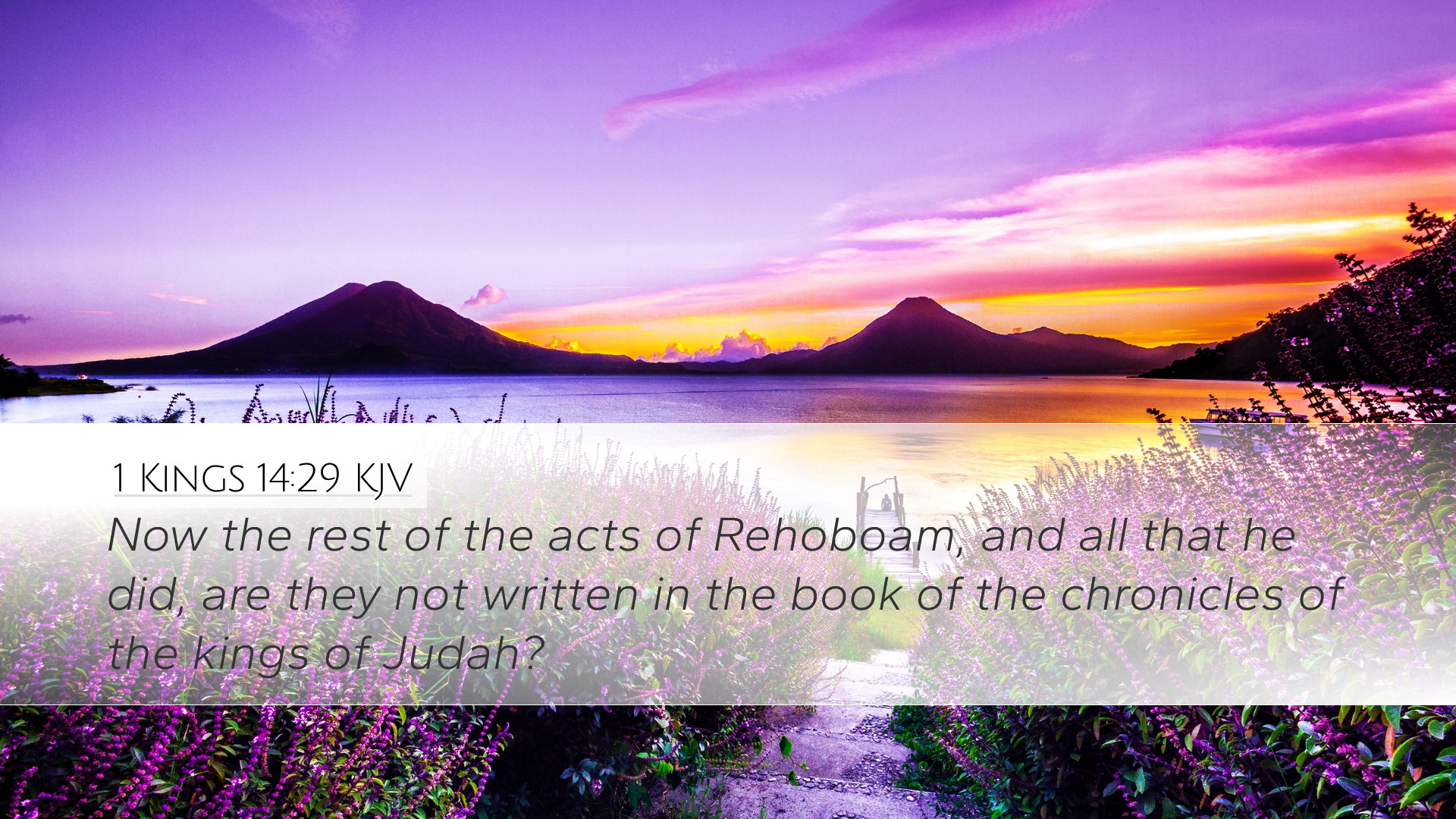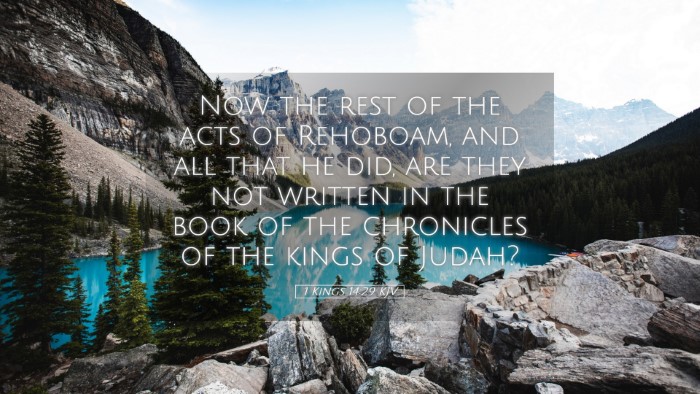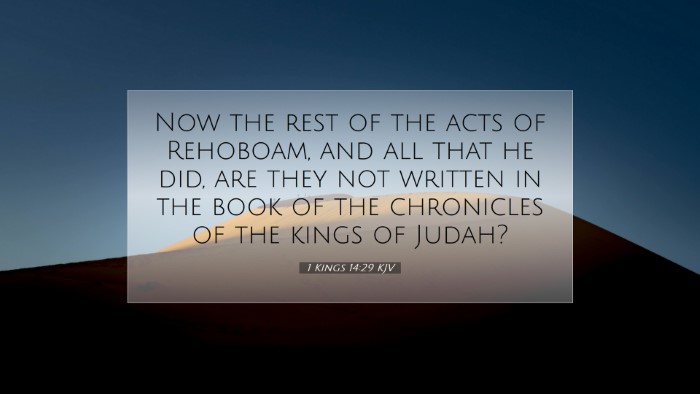Commentary on 1 Kings 14:29
Verse Text: "Now the rest of the acts of Rehoboam, and all that he did, are they not written in the book of the chronicles of the kings of Judah?"
Introduction
The verse of 1 Kings 14:29 serves as a crucial reference point in the narrative concerning Rehoboam, the son of Solomon, and the unfolding events in Judah during his reign. This commentary seeks to synthesize insights from public domain scholars such as Matthew Henry, Albert Barnes, and Adam Clarke, to illuminate the implications and theological significance of this passage.
The Historical Context
Rehoboam ascends to the throne of Judah following his father Solomon’s death. The book of 1 Kings provides a historical account of the kings of Israel and Judah, establishing context for Rehoboam’s reign, which is marked by significant challenges and a largely turbulent legacy.
- Division of the Kingdom: Following Rehoboam's foolish decision to reject the counsel of the elders and to respond harshly to the people, ten tribes of Israel rebelled, leading to the division of the kingdom.
- Idolatry and Apostasy: Rehoboam’s reign was characterized by a drift towards idolatry, which was a significant aspect of Judah's trajectory during this period.
Verse Breakdown
1. "Now the rest of the acts of Rehoboam..."
Henry points out that this phrase indicates that there is more to be known about Rehoboam's actions, suggesting a comprehensive history that is not wholly captured in this account.
2. "...and all that he did..."
Barnes emphasizes that the author of Kings recognizes the limitations of his narrative while threatening to give a more detailed account in other records. This acknowledgment implies the existence of sources outside of the canonical texts which could provide further insights.
3. "...are they not written in the book of the chronicles of the kings of Judah?"
Clarke notes that the Chronicles would have included various details of Rehoboam's reign including both his successes and failures. This points towards the understanding that historical records were kept, intended to teach moral and spiritual lessons.
Theological Implications
The passage underscores several theological themes relevant to current faith practices:
- The Importance of History: The chronicling of Rehoboam's reign reflects the biblical emphasis on historical continuity, reminding believers that God’s actions and human responses are critical in the unfolding of salvation history.
- The Consequences of Leadership: Rehoboam's decisions led to profound consequences for the nation. Pastors and leaders must consider their influence and responsibilities, as spiritual and moral integrity in leadership can shape communal identities.
- The Sovereignty of God: Despite Rehoboam's failures, this reminder of written records demonstrates God’s providential care over history, maintaining control even amidst human rebellion.
- Lessons from the Past: For students and scholars, the continual call to refer back to historical accounts emphasizes the need to learn from previous generations to avoid the pitfalls they faced.
Conclusion
In summation, 1 Kings 14:29 serves not only as a historical marker but as a compelling reminder of the significance of written records for understanding the past. Through insights gleaned from revered commentaries, we are invited to reflect on the life of Rehoboam in light of broader theological truths relevant to contemporary faith practice. This verse invites both challenge and encouragement as we consider our own lives within the tapestry of God’s continual revelation and historical narrative.


